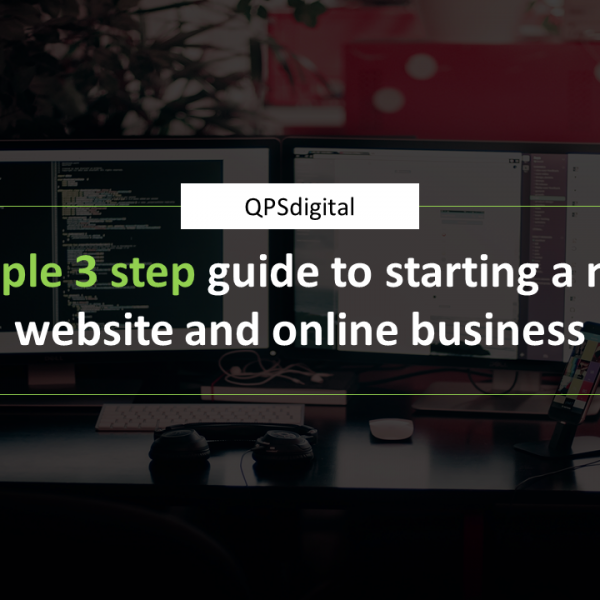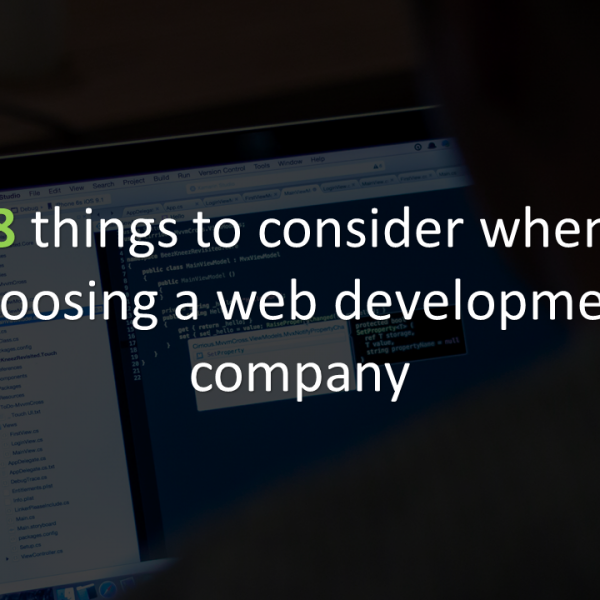
When looking at a new business, that be digital or not; there are essential elements any new entrepreneur should consider before starting. It’s great to have ideas – we all have dreams – but what matters most is execution. Try to consider the following before investing any money into your future business.
Start by drafting your new business ideas on to paper
To start with, we say paper, but using Microsoft word is probably one of the most efficient ways to do this. It allows for easy editing and sharing.
The goal for this exercise is to find gaps within your idea and filling in the blanks. If your idea seems simple, you probably haven’t written enough down.
Below are things to consider including in your first draft.
- Who is your customer?
- How will your customer learn about your product or service?
- Is there an actual need in the market for this product or service?
- How competitive is the market?
- How will you deliver your products and services?
- How will you sell your product and services?
- Most importantly, what is your MVP for this product?
What is your new business MVP?
A minimum viable product (MVP) is the simplest version of a product or service that a business can develop and release to its customers for feedback and testing. As shared by Techtopia, an MVP has three key characteristics to consider:
- Your MVP has enough value that people are willing to try it and buy it.
- Your MVP demonstrates enough future benefit to retain early adopters.
- Your MVP provides a feedback loop to guide future development.
Try focusing on your MVP with the goal of drastically reducing the risk of developing a product that your audience doesn’t want. It’s common for entrepreneurs to pivot their business ideas several times before finding an offer that works and customers are willing to buy. Furthermore, MVPs provide the entrepreneur with the benefits of learning the market, building an early adopters list and receiving valuable feedback needed to guide future development.
In fact, this technique isn’t for everyone, but it still serves as a great principle when looking at any new business idea.
Validate your new business ideas with friends and family
Great, you’ve got your ideas on paper, it’s now time to share with those closest to you.
This one is going to be tough, but here’s what you need to do.
Don’t speak but come ready to listen!
Try to give your audience the chance to read and digest your draft document on their terms. The objective is to have them provide feedback based on their understanding of your new business idea, but more importantly in their own words. Undisturbed feedback is one of the most important aspects to keep the advice received as unbias as possible. You’ll be shocked at how many people won’t understand your idea the same way you do. It’s better to have friends and family give you honest advice over losing a potential client or investor by rushing the process.
A great technique for doing this is providing your family and friends with the document ahead of time and building a simple Google survey. Google form is a free tool and very simple for anyone to complete. Once you’ve received feedback, it’s now time to challenge the views and get a better understanding of why they structured their feedback the way they did.
If done right, you should find yourself going back to the drawing board and coming up with solutions that can overcome concerns identified.
Most importantly, the result could also lead to questioning if this idea is worth perusing. If this happens, don’t feel down; this is a great thing. Wouldn’t you rather know before spending thousands of dollars?
Receiving negative feedback doesn’t mean STOP, but rather, emphasizes the importance of validating your idea through third-party unbiased customers.
Validate your new business ideas through third-party, unbiased customers
In most cases, family members don’t always have the same entrepreneurial spirit you possess. It means the advice can be taken with a grain of salt but should be used to enhance your offering and serve as preparation for feedback you’ll be receiving from third-party unbiased customers.
Don’t skip this step!
It’s common to receive positive feedback from family and friends; however, are they your target audience? If not, then it’s important to take everything you’ve learned and sought feedback from potential customers or people who have nothing invested in seeing you succeed.
It’s a great opportunity to not only get good feedback but also starting building your early adopters list. Customers who take the time to hear you out, speak with you, and advise are more likely to be your first paying customers. These customers will feel like they have skin in the game and have helped you develop a platform that answers their needs.
Put your new business plan together and bring your ideas to a structured format
Next, it’s time for a business plan to illustrate and structure all the advice you’ve received in a clean and readable format. Overall, a business plan is the most valuable tool any business owner needs to have, regardless of whether your startup has the potential to be a small or large business. The business plan offers a structure that will help bring any product or solution to life. More importantly, it’s the same tool investors, and banks will request when considering investing in your business. Consider the following, Investors and banks are concerned about one thing: return on investment (ROI). Firstly, your business plan needs to help them see how their investment will be distributed; second on what it will be spent on, lastly, how they’ll get it back. The most notable aspects of a business plan are:
- Executive summary (always written last)
- Company description
- Products and Services
- Marketing strategy
- Management and operational plan
- Strengths, weaknesses, opportunities and threats analysis (SWOT)
- Financial forecasts
- Exit strategy
- Appendices
Good news, there are hundreds of online resources to help business owners complete a business plan. The following are suggestions of business plans templates and tools found online:
- Canadian – FREE downloadable word document from BDC
- US – FREE downloadable word document from U.S Small Business Association
- Business plan builders like LivePlan, LawDepot or bplans.
Studies have proven that entrepreneurs who take the time to develop a proper business plan double their chances for success. It doesn’t mean that entrepreneurs who haven’t completed a business plan won’t succeed, but it does make the journey more difficult.
An excellent business article on smallbiztrends.com showcases this exact startup trend.
Don’t skip a personal financial plan
Congratulations, it’s time to celebrate the small victories you’ve now completed your business plan and ready to execute.
Before investing any money, have you also considered the financial impact your new business will have on your family and personal finances?
Here’s a better question, how many years do you think it will take before you make money?
New businesses can take upwards of 2-4 years before owners start seeing the fruits of their labour. An article by www.startup.com shows the journey has four-year milestones:
- Year one – Everything is a win.
- Yay, you’re now incorporated.
- Woohoo, you’ve launched your website.
- Holy, we got some press about our products and services.
- Year Two – Where’s the Money?
- Year Three – Product validation
- Year Four and Beyond – Finally, this is where the magic starts to happen
Most entrepreneurs think their business will be profitable within a few months; sadly, this is rarely the case. Make a financial plan that will help you survive throughout the journey.
Work with a team that understands the startup journey
There’s not much that can compare to the journey of an entrepreneur. More importantly, emotions will be very high and low; it’s like riding a rollercoaster. That said, once you make it to the other side through hard work and perseverance, nothing will ever compare to the satisfaction and thrill. The feeling of starting something, seeing it come to life and have others engage with it is the best feeling in the world. Remember, the biggest difference between successful entrepreneurs and those who struggle is planning and execution.
Our team at QPSdigital.com is here to help; we help entrepreneurs and business owners bring their ideas to life. Our mission is to help customers bring their dreams to reality by understanding their WANTS and challenging the HOW. Our experienced team offers web development, mobile apps, web design, web hosting and maintenance, quality assurance and project management.
We also offer a free online questionnaire to help identify basic elements to consider for any digital project.
Are you ready? Connect with us today for your free consultation.
Best of luck on your journey!
Christian Duguay
Sales Professional, Entrepreneur and Family Man


